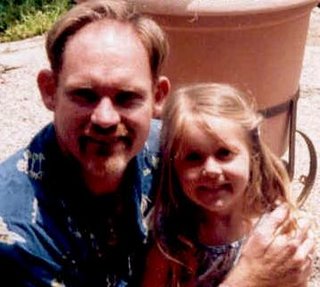This Is What Disturbs Me About This Case (Part I)
According to testimony, the detectives had a preconceived notion about this case. They were determined to find a motive and proof that Cameron Brown had thrown his daughter off the cliff at Inspiration Point. As their investigation proceeded they ignored all exonerating evidence as it surfaced.
The coroner was not prepared to call this a homicide in the beginning. With good reason, since there was no independent knowledge of such. Sarah was angry over the loss of her child, and rightfully so. But why was she confronted with was a homicide bag as she was told of Lauren's death? I believe this was done to immediately implant an idea that Cameron had intentionally killed their daughter. Before Cam had been questioned, before the facts had been investigated, before the investigators had been to the actual scene on Inspiration Point, they had already concluded that this was a homicide. Abusing a grieving mother in such a way is one of the most despicable acts committed in this case (and there are many).
Although Sarah said that Cam had not called her, he had attempted to call her at least twice before he was advised to no longer do so. Smartly so, since the detectives had already set up traps and bugs on Sarah's phone....a trap that caught Sarah's call to Cam telling him to not dare show up at Lauren's funeral. Yet the prosecution deliberately stressed during the trial that Cameron's failure to attend Lauren's funeral was because of his callous disregard for her death. In fact, Sarah admonished him strongly NOT to come and Cam acquiesced to her demands because he did not want to cause her any further discomfort.
The Coroner finally, after 5 months, concluded that Lauren was murdered because a pediatric specialist was called in by the investigators to sway his opinion. This expert stated in testimony that Lauren would have never walked all that way, even though the detectives had witness statements to the contrary. She said the path was strenuous and physically challenging, with sharp inclines and declines. She said they followed a dirt path the whole way. She said the investigators told her they knew for certain that this was the same path Lauren and Cam took that day. But Detective Leslie testified that they did not know the exact path they took. They only knew that witnesses saw Lauren and Cam at certain points along the way. A number of witnesses testified that they saw them on the paved road. The paved road is considerably less strenuous than many of the dirt paths. During the proceedings the point was made that the pediatric consultant was taken on a DIFFERENT path, a longer and more strenuous path than the path taken by Lauren and Cam that day.
The pediatric specialist was TOLD that Lauren was afraid of her father. She testified that she put a lot of importance on that in making her decision. She felt Lauren's fear of her father had a coercive effect on Lauren. She felt a child Lauren's age would not have taken that path if the child had not been coerced. Fear filled the requirement for coercion. Without fear, the consultant's theory does not hold up. Yet, later that same day there was testimony that Lauren said Cam loved her very much and she had no fear of Cam.
This consultant's report is pivotal because the coroner based his opinion on her opinion and Hayes based his on the coroner. Yet the pediatric specialist based her opinion on a faulty premise which the police knowingly and purposely gave her. This was done with total disregard for witnesses who saw Cam and Lauren that day and said that she appeared happy as she ran along the trail and threw rocks.
The coroner's last sentence in his conclusion asserts, "Further given the circumstances, child endangerment is a consideration therefore, the manner of death is classified as homicide." Mark Geragos pointed out that this is a matter of law not pathology. When do medical examiners make decisions on the manner of death based on elements of the law? The coroner was outside his area of expertise, and therefore got it wrong. Mr. Geragos pointed out that child endangerment speaks to negligence not homicide. He pointed out that the cops put the words in the coroner's mouth. The coroner sank deeper and deeper into his seat as Mr. Geragos questioned him on these matters.
The coroner's conclusion states that his opinion is the fall was an assisted fall. He said he is making that opinion because it "is supported by the site visit with our pediatric consultant, Coroner's investigator, law enforcement officers and Chief Medical Examiner-Coroner, wherein it was observed that the terrain is rugged and it is not likely that a 4-year old female would voluntarily hike there without experiencing fatigue. Further given the circumstances, child endangerment is a consideration therefore, the manner of death is classified as homicide." What the coroner essentially said here is he deferred to the pediatric specialist and the cops in making his determination for how to classify the manner of death.


